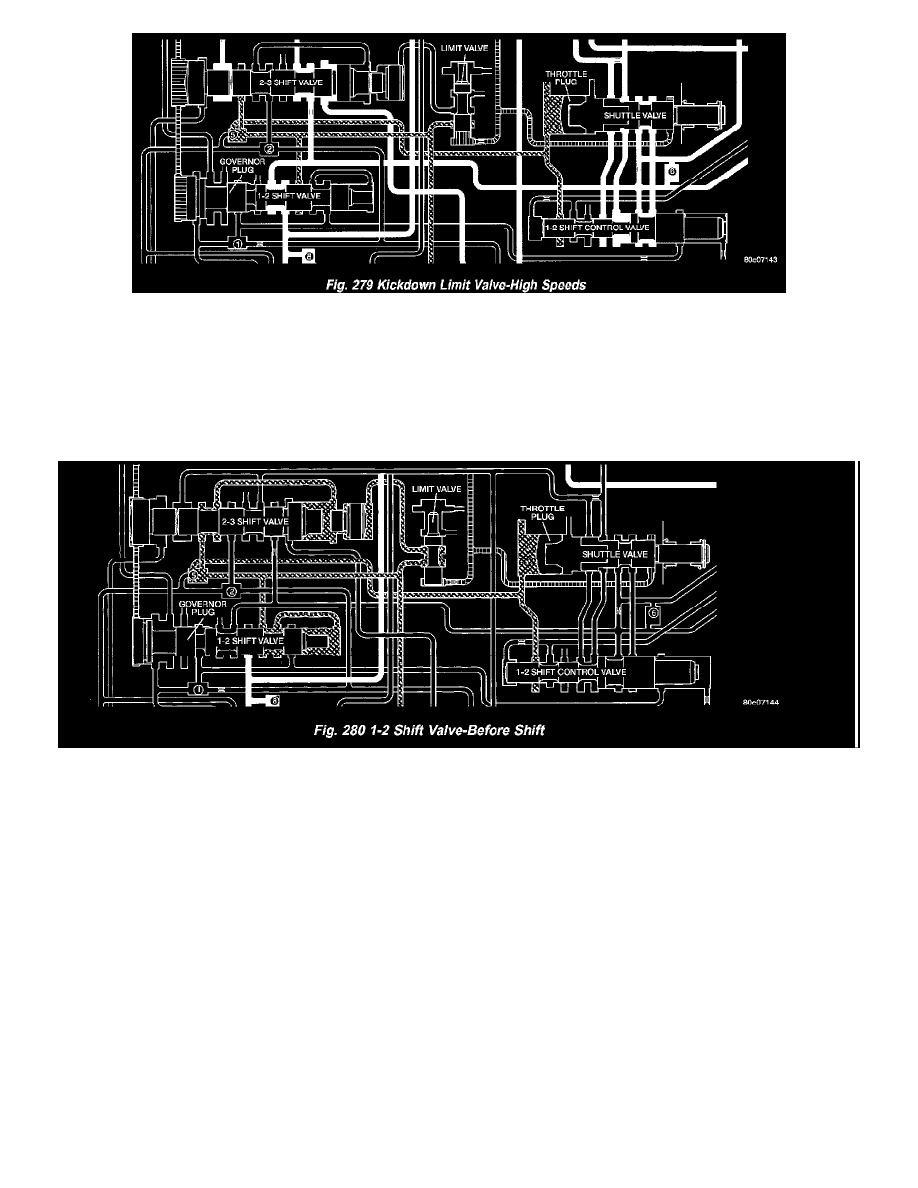RAM 1500 Truck 4WD V8-5.9L VIN Z (2002)

KICKDOWN LIMIT VALVE
The purpose of the limit valve is to prevent a 3-2 downshift at higher speeds when a part-throttle downshift is not desirable. At these higher speeds only a
full throttle 3-2 downshift will occur. At low road speeds (Fig. 278) the limit valve does not come into play and does not affect the downshifts. As the
vehicle's speed increases (Fig. 279), the governor pressure also increases. The increased governor pressure acts on the reaction area of the bottom land of
the limit valve overcoming the spring force trying to push the valve toward the bottom of its bore. This pushes the valve upward against the spring and
bottoms the valve against the top of the housing. With the valve bottomed against the housing, the throttle pressure supplied to the valve will be closed
off by the bottom land of the limit valve. When the supply of throttle pressure has been shut off, the 3-2 part throttle downshift plug becomes inoperative,
because no pressure is acting on its reaction area.
1-2 SHIFT VALVE
The 1-2 shift valve assembly (Fig. 280), or mechanism, consists of: the 1-2 shift valve, governor plug, and a spring on the end of the valve. After the
manual valve has been placed into a forward gear range, line pressure is directed to the 1-2 shift valve. As the throttle is depressed, throttle pressure is
applied to the right side of the 1-2 shift valve assembly. With throttle pressure applied to the right side of the valve, there is now both spring pressure and
throttle pressure acting on the valve, holding it against the governor plug. As the vehicle begins to move and build speed, governor pressure is created
and is applied to the left of the valve at the governor plug.
